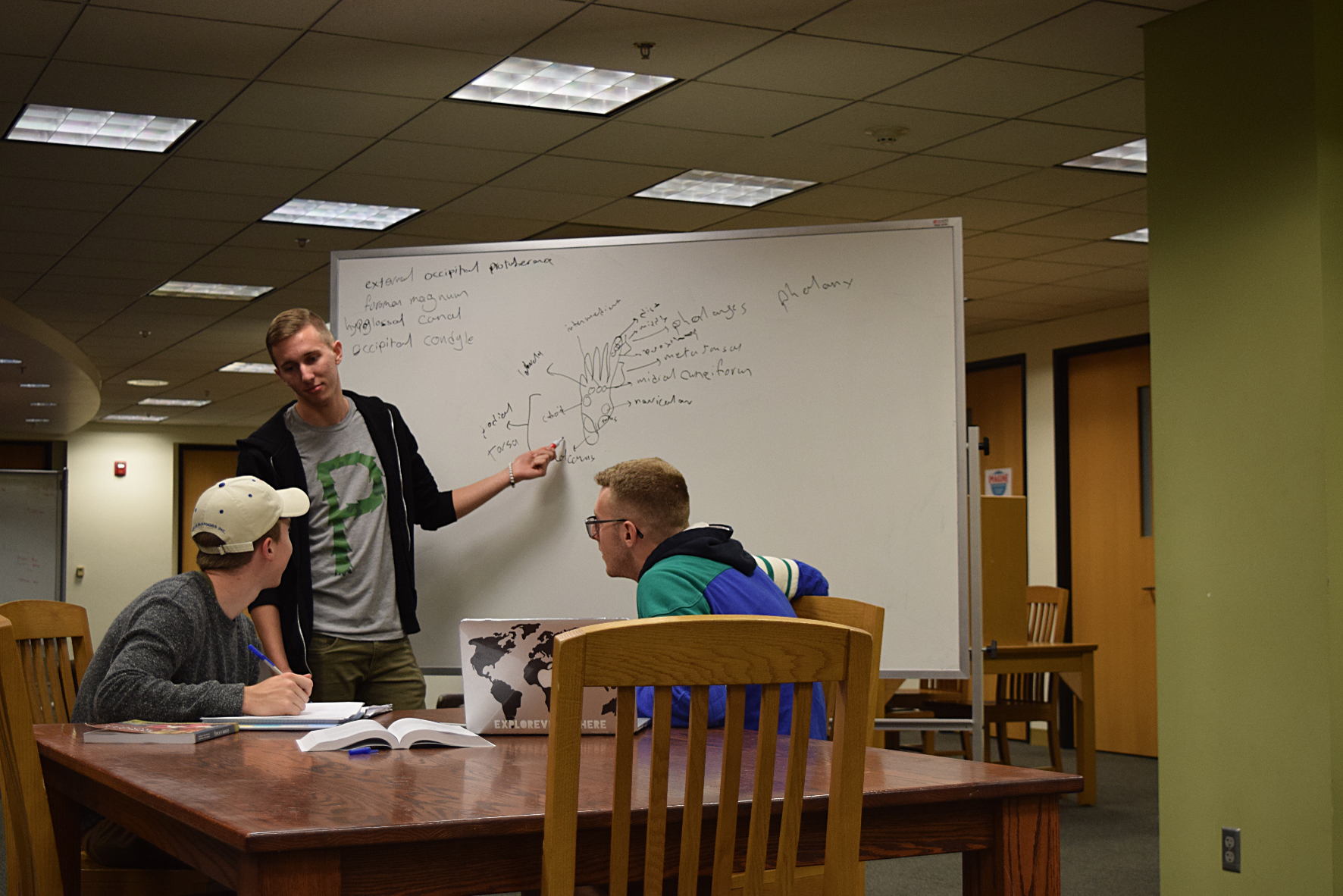Climate change: this century’s most critical issue and obstacle—and the one we like to discuss the least. Mainstream media’s pathetically timid coverage of the greatest challenge of our time finds its roots in the divisiveness of the issue. Those who recognize the threat of now-irreversible climate change and those who continue to deny its existence both share a strong common ground: neither can breathe underwater.
An Inevitable Truth
Tides will rise while oceans continue to acidify. Hundreds of millions will die. Horrific meteorological events will bring nations to their knees and catalyze the displacement of nearly a billion lives. Rising temperatures will implode global food security, exacerbating the coming water shortage and leading to substantial violence and unrest.
If you think this is simply a lot of doom and gloom, hot off the liberal press, you’re wrong.
Every year, carbon dioxide levels pendulate but steadily increase in accordance with annual changes in vegetation. Last September, during the period considered by climate scientists as the annual minimum, we exceeded 400 parts per million of CO2 in our atmosphere. This symbolic moment represents humanity’s most catastrophic failure, one which cannot be fixed—ever. 
In research published by the National Academy of Sciences, leading climatologists are extremely explicit in their wording: “The physical climate changes that are due to anthropogenic carbon dioxide already in the atmosphere today are expected to be largely irreversible. Such climate changes will lead to a range of damaging impacts in different regions and sectors, some of which occur promptly in association with warming, while others build up under sustained warming.”

If you’re on the side that believes this rate of climate change occurs naturally, that human carbon addiction has been negligible in the process, it is past time to reconsider.
Finding Fault
Future generations are going to ask who did this to them. The importance of understanding the root causes of the climate crisis ultimately lies in our ethical responsibility to establish an accurate historical account of how we got here. It is not to affix blame to corporations or pig-headed politicians, or to eschew blame ourselves as consumers, but to preserve some degree of truth for the generations who will live in the world we have collectively abandoned.
The inability and ineffectiveness of local and international political institutions to limit and regulate the outrageous rate of ecological degradation is the primary sociopolitical catalyst of climate change.
The capitalist world order perpetuates a competitive system wherein there is little incentive to slow the rate of growth or ever impede resource markets. I say this on behalf of exactitude, not conspiracy. The failure of the Kyoto Protocol is a sobering example of this reality. Given the opportunity to regulate polluters and attempt to tackle climate change, states insist instead on economic growth as, predictably, the most important factor. It also exposes a harsh reality—the ideological superstructures of even disparate states are informed by and rooted in their material base: unsustainable fossil-based resource infrastructures.
Language barriers and arbitrary differences in social norms have contributed to a culture of us vs. them, a world of uncooperative and ironically Westphalian states. Conflict is seemingly eternal; perpetual war has become the new peace; citizens of large, militaristic Global North nations don’t bat an eye when they learn their democratically elected governments commit atrocities and turn the planet into a backdrop for petty conflict.
The insatiable appetite for carbon that has defined industrialized nations has led to neocolonial practices (see Latin America, Iran, Africa) and heightened tensions between nuclear powers. Moreover, to stay competitive, states are now willing to turn a blind eye to the rise of hydraulic fracturing, commonly called fracking, an unsustainable method of quickly exploiting shale gas deposits.
In the United States, Republicans and Democrats are both responsible for whoring the planet like apathetic pimps to industries and corporations, leading to ecological calamities across the globe. When a national commission investigated the Deepwater Horizon oil spill, wherein 200 million gallons of crude oil spilled into the Gulf of Mexico, they discovered the accident was a result of BP cutting corners and safety regulations. In the end, the former British Petroleum was fined nearly $54 billion, the largest environmental settlement in U.S. history. Large as it may be, this isn’t even close to good news—the penalty paid was less than 23 percent of the revenue BP generated in the year of the accident alone.
The same Grand Old Party currently holding the Senate hostage in its crusade to reserve the Supreme Court for climate-denying warmongers also happens to be the only climate-denying conservative party in the world.
Donald Trump, the GOP’s ideological center of gravity, has tweeted that “the concept of global warming was created by and for the Chinese in order to make U.S. manufacturing non-competitive.” Despite his claim, the Chinese are actually well aware of their role as the world’s primary source of CO2 emissions and are active participants in the international discourse on climate change. In fact, in the same September in which Trump uttered the lie, President Obama and President Xi Jinping reached a relatively harmonious agreement committing to the Paris climate accord. Unfortunately for both, the U.S. and China’s failure to ratify previous climate agreements may have made it far too late to act.
Neoliberal trade policies have exacerbated the intrinsically harmful nature of capitalistic practices: to capitalism, the environment is an invisible entity, similar to the rights of its workers. Whereas the conservationist believes intact wilderness possesses some degree of inherent value, the capitalist sees untapped wilderness as an opportunity for greater wealth or an obstruction of the path to success. When John Muir lost an ideological battle against Gifford Pinchot, with the more anthropocentric view emerging on top, the rest was history.
A Handful of People
As we begin our trajectory toward inevitable planetary failure, wherein the Earth cannot support its now-vampiric human host, one particular group of people will be among the last to die—or the first, should the masses learn of their crimes.
While their pet politicians have been in the driver’s seat since the dawn of the industrial era, the bourgeois capitalist elite have been holding the wheel—the state need only hit the gas. In the backseat, you and I sit contentedly, our ignorant smiles dissimilar to those worn by our smug driver and his trusty copilot. We could have jumped out along the way but chose instead to enjoy the ride.
There is an inaccuracy in the way climate change’s human factor is often described. Simply attributing the rise of carbon dioxide in our atmosphere to human activity is relatively misleading.
Two-thirds of all carbon dioxide and methane emissions come from just 90 entities. Rick Heede’s climate accountability research, instead of dividing carbon emissions by country, directly aggregates historical emissions to their carbon-producing entities. Chevron, Exxon and BP are at the top of a list of a mere 90 companies responsible for a majority of the emissions created since the industrial revolution. In an article published by the Guardian, Heede states that those responsible for the climate crisis, which is now irreversible and will kill hundreds of millions, can, when considered individually, fit “onto a greyhound bus or two.”
If there has ever been a more convincing argument against the massive and exponential upward concentration of wealth, I’ve yet to see it. The CEOs, CFOs and big decision makers of less than a hundred companies have collectively put an expiration date on human civilization. The elites will benefit well into the next century, while 40 percent of the poorest countries in the world will experience a staggering 75 percent reduction in income.
We have been rushed into the next mass extinction by a handful of people who wanted more than they ever needed.
By no means, however, do I imply the masses are innocent. The international culture of wealth and greed, assumed by many to be fixed institutions of the human condition, has resulted in the now ubiquitous notion that excess describes success, that those with more are better than those with less and that those with nothing most likely deserve it. The poor are stigmatized while the rich are often famous for wealth alone, its value somehow possessing virtuous externalities. Even when the ultra-rich don’t pay taxes, they can run for president surprisingly well.
In a world where corporate and government policies seek to constrain the free will and decision-making processes of millions who would have otherwise opted for a renewable source of green energy, it is unsurprising that such oppressive market interferences are present elsewhere. Even more unsurprising is the realization that blame has been shifted, once again, onto the unknowing and all-consuming masses.
The Grand Illusion
It is hilarious and heartbreaking. When we were children, we were taught by both our parents and state-run school programs that forgetting to turn off the lights is a considerable waste of resources and energy. Large assemblies were held in gymnasiums across the country, in which we were told ineffective stories about how leaving the water running while we brushed our teeth was a waste of resources.
Where was this overbearing, overprotective government when polluting industries decided it was time to kill planet Earth? Was it taking big bucks from special interests or enjoying their revolving door into the very industries that pulled its strings?
It doesn’t matter now. If all of the executives and politicians responsible for knowingly driving us off the climate cliff were publicly hanged, nothing would change.
We were avaricious. We coveted our cult of consumption, fell victim to the distractions of a comfortable life, a comfortable home, a comfortable vehicle. We slept cozily, not only in ignorance but also in apathy toward the billions yet to be born in an increasingly inhospitable world.
The world was a grand illusion, one frantically sustained by our governments, plutocrats and insecurities. When scientists issued desperate pleas for action nearly every year for the past several decades, we ignored them for our priorities: singing competitions and good haircuts, what Kim Kardashian wore to last night’s event, the next offensive tweet made by America’s darling.
Big Oil has known about climate change since the late 1970s, yet generously funded its deniers. For four decades, decisions were made, in public and private, agreeing to sell the rest of the world to an expected doom.
What can we do? The human race is often typified as those who represent the worst of us. The politicians who’d sell us as chattel and the oilmen who’d slit our throats for a cheap buck are unrepresentative of the thoughtful and compassionate civilization we could be.
It’s Now or Never
Humanity is strong, if it is anything. We have bent an entire planet to our will, with Mars now in our scope. We are capable, and more importantly, willing, to do whatever it takes to survive. The following are steps we can take now to mitigate exponential climate degradation:
1. Divest from fossil fuels. The United States alone annually subsidizes the fossil fuel industry by more than $20 billion a year, an amount which has increased by 35 percent in the last seven years alone. Movements across the country have spurred a variety of institutions to divest from industries that profit from the destruction of our planet.
2. Oppose the Trans-Pacific Partnership. Write to your legislators and representatives and demand they oppose the TPP, an international trade agreement that prioritizes the interests of the fossil fuel industry over the planet, putting climate-preservation movements at risk and allowing substantially increased fracking.
3. Keep carbon in the ground. Two ways we can do this is by opposing the Keystone XL Pipeline and the Galilee Coal Project. The construction of the pipeline would further enable the emission of greenhouse gases into our atmosphere—whereas the Galilee Basin is a carbon bomb awaiting detonation.
4. Take climate change seriously. It is an uncomfortably apocalyptic topic, but that’s exactly why we need to start and sustain a concentrated discourse on the future of our planet. To believe we live in a state of permanent resource security is foolish.
We must act now or risk losing the agency to do so. It is now or never.







A terrific piece that I will be sharing.
Renewable energy ain’t gonna save us. Its EROEI is too low. Population reduction and control is the only viable option.
“despite a string of optimistic choices resulting in low values of energy investments, the ERoEI is significantly below 1. In other words, an electrical supply system based on today’s PV technologies cannot be termed an energy source, but rather a non-sustainable energy sink or a non-sustainable NET ENERGY LOSS.”
https://collapseofindustrialcivilization.files.wordpress.com/2016/05/ferroni-y-hopkirk-2016-energy-return-on-energy-invested-eroei-for-photo.pdf
“Whenever somebody with a decent grasp of maths and physics looks into the idea of a fully renewables-powered civilised future for the human race with a reasonably open mind, they normally come to the conclusion that it simply isn’t feasible.”
http://www.theregister.co.uk/2014/11/21/renewable_energy_simply_wont_work_google_renewables_engineers/
“new Green technologies designed to save humanity from CO2 may kill humanity through energy starvation”
“If we used more energy to get the energy we need to survive then we will surely perish.”
“ERoEI = energy gathered / energy invested” “net energy = ERoEI-1”
“An inevitable consequence of this aspect of human nature commonly known as greed is that we have already used up the highest ERoEI fossil fuel resources and as time passes the ERoEI of new resources is steadily falling.”
“The greatest risk to human society today is the notion that we can somehow replace high ERoEI fossil fuels with new renewable energies like solar PV and biofuels.”
http://euanmearns.com/eroei-for-beginners/
Thank you for your kind words and for the resources you’ve provided me! I’ll definitely be continuing my research.